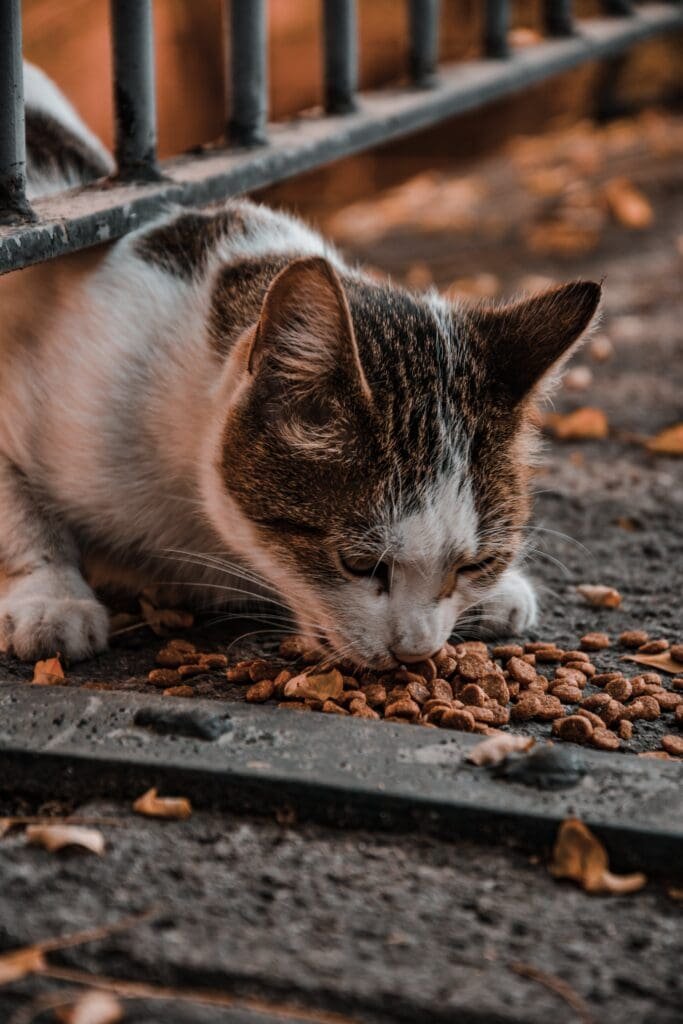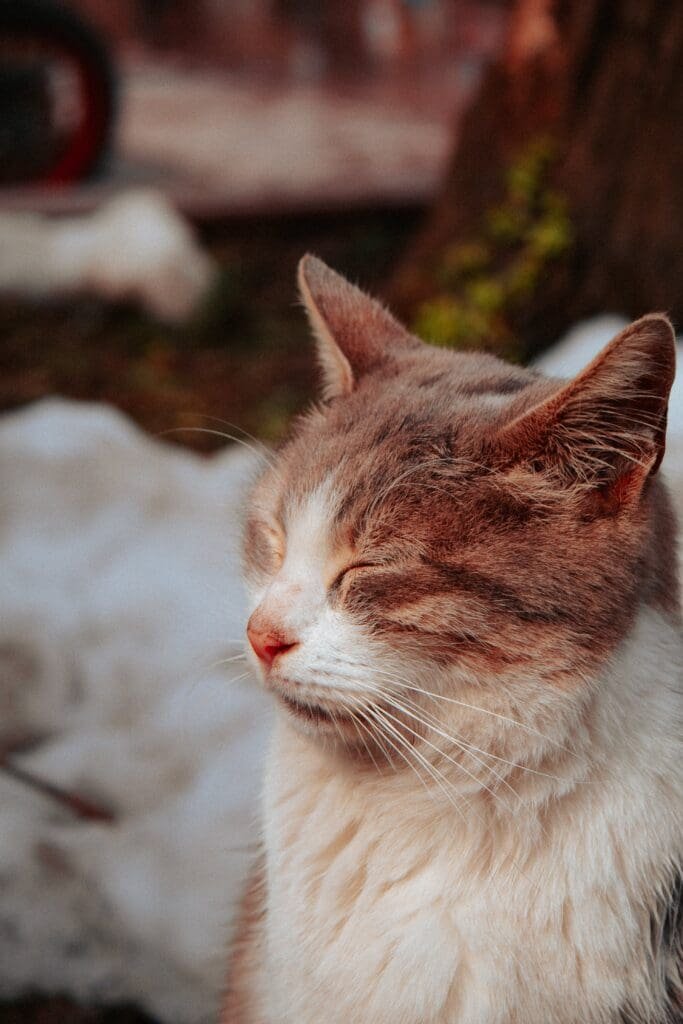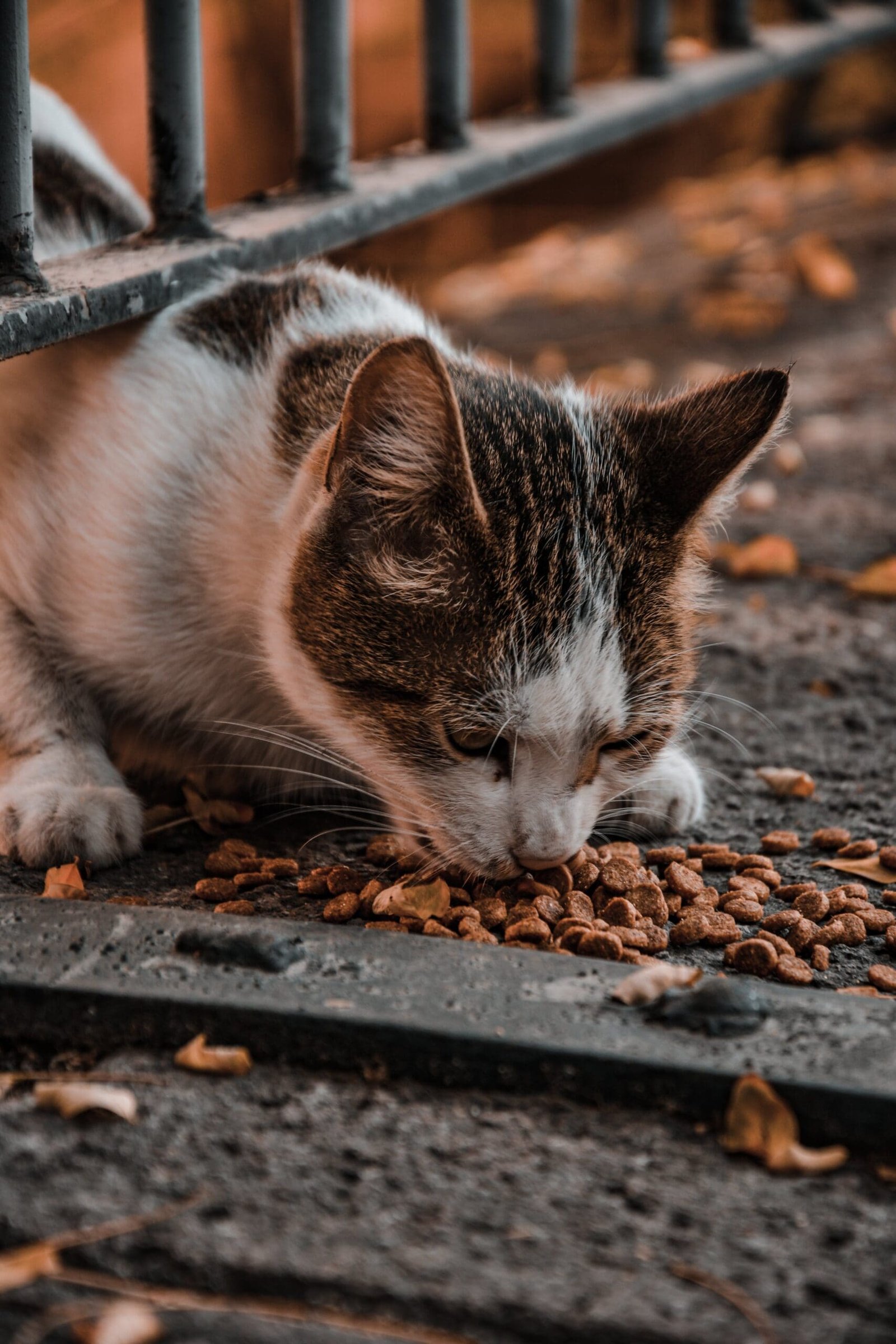Cat Not Gaining Weight But Eating Cats are known for their finicky eating habits, but what happens when a cat appears to eat well yet fails to gain weight? This puzzling scenario can be concerning for cat owners and may indicate underlying health issues. In this article, we delve into the reasons why a cat might not be gaining weight despite having a seemingly healthy appetite.

Possible Causes:
- Hyperthyroidism: Hyperthyroidism is a common hormonal disorder in cats, particularly in older felines. This condition occurs when the thyroid gland produces an excess of thyroid hormone, leading to an increased metabolic rate and weight loss despite an increased appetite.
- Malabsorption Disorders: Cats with malabsorption disorders may have difficulty absorbing nutrients from their food, resulting in weight loss even if they are eating well. Conditions such as inflammatory bowel disease (IBD) or intestinal parasites can interfere with nutrient absorption and lead to poor weight gain.
- Diabetes: Diabetes mellitus can affect cats just like humans, causing symptoms such as increased thirst, frequent urination, and weight loss despite a hearty appetite. In diabetic cats, the body’s inability to properly utilize glucose for energy can result in weight loss despite adequate food intake.
- Dental Issues: Dental problems such as periodontal disease or tooth decay can make eating painful for cats, leading to a decrease in food consumption and subsequent weight loss. Cats may continue to eat despite oral discomfort, especially if they are motivated by hunger, but their overall intake may be insufficient to maintain a healthy weight.
- Parasitic Infections: Intestinal parasites such as worms can compete with the cat for nutrients, leading to weight loss despite a seemingly normal appetite. Cats may also experience gastrointestinal discomfort or diarrhea as a result of parasitic infections, further contributing to weight loss.
- Cancer: Cancer can affect cats of any age and may present with symptoms such as weight loss, lethargy, and changes in appetite. Tumors can interfere with the body’s ability to metabolize nutrients properly, leading to weight loss despite adequate food intake.
- Stress or Anxiety: Cats are sensitive creatures, and stress or anxiety can impact their eating habits and overall well-being. Environmental changes, household disruptions, or the presence of other animals can cause stress in cats, leading to decreased food intake and subsequent weight loss.
Here are a few additional suggestions for cat owners dealing with a cat that isn’t gaining weight despite eating:

- Monitor Food Intake: Keep a detailed record of your cat’s daily food intake, including portion sizes and any changes in appetite. This information can be valuable for your veterinarian in assessing your cat’s dietary habits.
- Choose Nutrient-Dense Foods: Opt for high-quality, nutrient-dense cat foods that are formulated to meet the nutritional needs of cats. These foods can help ensure that your cat is getting the necessary nutrients despite consuming smaller quantities.
- Feed Small, Frequent Meals: If your cat has a reduced appetite or difficulty eating larger meals, consider offering smaller, more frequent meals throughout the day. This approach can help ensure that your cat gets enough calories and nutrients without feeling overwhelmed by large portions.
- Provide a Quiet Feeding Environment: Cats can be sensitive to their surroundings, especially during mealtime. Create a calm, quiet environment for your cat to eat, free from distractions or disruptions that may cause stress or anxiety.
- Address Dental Issues: Regular dental care is essential for maintaining your cat’s oral health and overall well-being. Schedule regular dental check-ups with your veterinarian and address any dental issues promptly to ensure that your cat can eat comfortably.
- Treat Underlying Medical Conditions: Work closely with your veterinarian to diagnose and treat any underlying medical conditions that may be contributing to your cat’s weight loss. Follow your veterinarian’s recommendations for treatment and management to help your cat regain and maintain a healthy weight.
- Provide Emotional Support: Cats can experience stress or anxiety for various reasons, including changes in their environment or routine. Provide emotional support and comfort to your cat during stressful times, and consider using calming aids or pheromone products to help reduce anxiety.
- Encourage Physical Activity: Regular exercise is important for maintaining your cat’s overall health and well-being. Encourage play and physical activity to help stimulate your cat’s appetite and promote healthy weight gain.
- Consult with a Veterinary Nutritionist: In cases where dietary modifications are necessary, consider consulting with a veterinary nutritionist to develop a customized feeding plan tailored to your cat’s specific needs and preferences.
- Be Patient and Persistent: Addressing weight loss in cats can be a gradual process that requires patience and persistence. Work closely with your veterinarian to monitor your cat’s progress and make any necessary adjustments to their care plan along the way.
By implementing these suggestions and working closely with your veterinarian, you can help support your cat’s health and well-being and address any concerns related to weight loss despite eating
Discover more from EMMOCEB
Subscribe to get the latest posts sent to your email.






